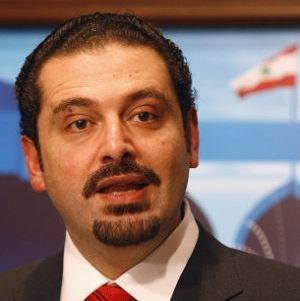Stability a Chimera in Lebanon

IRD: On Wednesday night, 11 members of Saad Hariri’s cabinet resigned. What is the future direction of Lebanese politics?
ME: Stability in Lebanon went up in smoke with this group resignation. After two years of delay in the formation of a national unity cabinet and relative stability, these resignations have changed everything. Considering the weight of the 8th of March and 14th of March camps, formation of a new government which has the support of both camps is quite unlikely. We will witness a new era of instability in Lebanon.
IRD: What exactly does the 8th of March camp expect from Prime Minister Saad Hariri and the 14th of March alliance?
ME: It wants its demands to be negotiated before the STL [Special Tribunal for Lebanon] issues its verdict, but Hariri has rejected their request. Saudi Arabia and Syria have also made serious efforts to forge an agreement between Hariri and the 8th of March, but their efforts have been foiled by US pressure on Riyadh, Damascus and Hariri. The Lebanese Prime Minister changed his attitude in the last days, and refused to meet their demands. The Eighth of March, and many Lebanese, insist that STL’s verdict is political, so they played hardball and asked their bloc in the cabinet to resign.
IRD: In his recent trip to the United States, Saad Hariri criticized the 8th of March for demanding that he overlook the outcome of Rafik Hariri’s tribunal. What is the 14th of March expecting from the Resistance?
ME: Hariri wants Hezbollah to wait for negotiations after STl’s verdict, what Hezbollah and the 8th of March view as their red line.
IRD: Why is Hezbollah insisting on an agreement before the tribunal’s verdict?
ME: There is nothing left to negotiate after the verdict. An agreement between Hezbollah and Hariri would prove that the government does not agree with the tribunal’s verdict.
IRD: Lebanon is on the verge of explosion. Do you see an about-turn that could prevent possible tensions?
ME: Regional countries that have a stake in Lebanon’s stability will continue their efforts. I think, for example, that Saudi Arabia and Syria will not stop their endeavors. But a reconciliation in the short-term between Lebanese factions is unlikely. Lebanon will plunge into another round of political turmoil and formation of the next cabinet will take a long time.
IRD: What attitude will Iran adopt vis-à-vis Lebanon’s developments?
ME: Iran supports stability in Beirut, and regarding its weight in Lebanese politics, it will play an important role. Iran will interact with Hezbollah and its other allies to maintain peace in the country. It will cooperate with Syria and Saudi Arabia, although its ties with Riyadh are not at an acceptable level today. Iran should make maximum efforts to ensure stability in Lebanon, because an unstable Lebanon would be in favor of Israel.
IRD: After his November visit to Iran, Saad Hariri promised to return in a month. Do you think it is now the time for a visit?
ME: I doubt that, unless he receives positive signals.
* Masoud Edrisi is Iran’s former ambassador to Lebanon.

